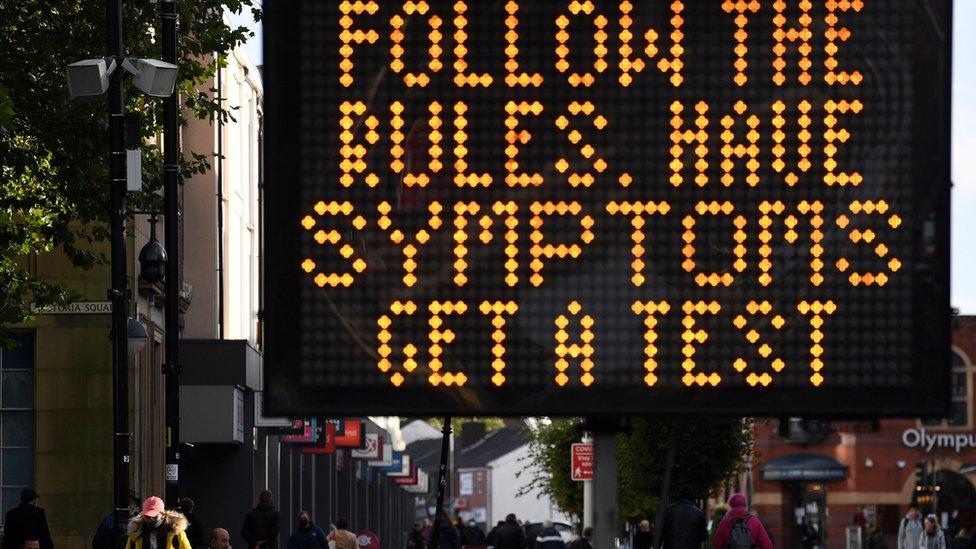Covid: Bolton would resent lockdown over Indian variant, says leader
- Published
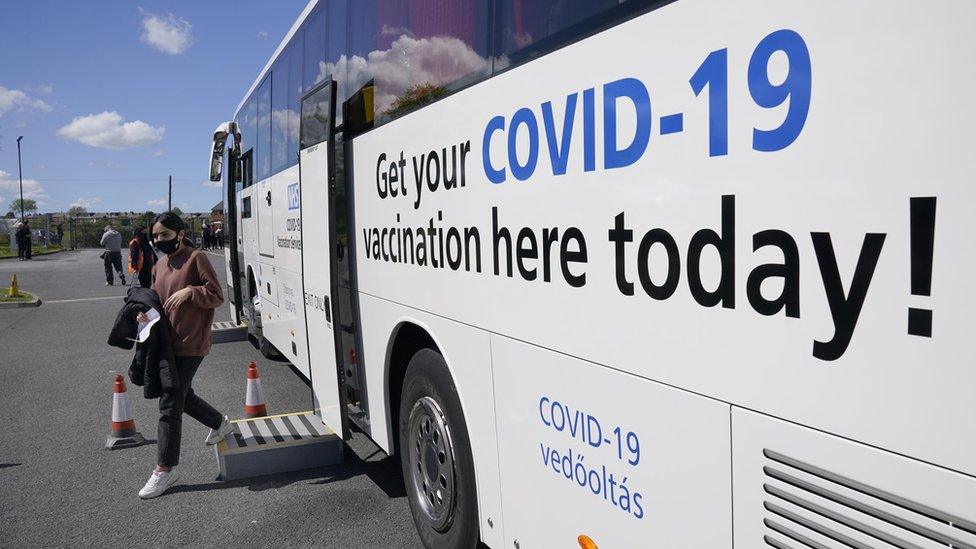
Surge testing and surge vaccinations have been introduced in the town
There would be a "great deal of resentment" towards a fresh local lockdown in Bolton to help stop the spread of the Indian variant, the town's council leader has said.
The variant, thought to be more transmissible, now makes up the majority of new cases in the area.
On Monday, Health Secretary Matt Hancock said a local lockdown had not been ruled out to stop the spread.
David Greenhalgh said it had already been shown such measures "don't work".
Latest government figures show Bolton has the highest infection rate - 319.9 cases per 100,000 people in the week up to 15 May - and the highest number of cases - a total of 920 - in England.
The figures represent the highest rate of cases in the town for almost four months.
'Disproportionately affected'
Mr Hancock said most people currently in hospital with coronavirus in Bolton were eligible for a vaccine but had not had one.
Surge testing and surge vaccination have been introduced in the town and a new vaccine centre opened on Tuesday for those working, living or studying in the BL3 and BL4 postcode areas, where thevariant has been most prevalent.
Speaking to BBC Radio 4's Today programme, Mr Greenhalgh said case numbers were "still rising", but the town "still haven't got an increase in hospitalisation and severe illness, which is hugely welcome".
He added: "We have community spread, there's no doubt about that, but the majority of our cases are in our younger age groups."
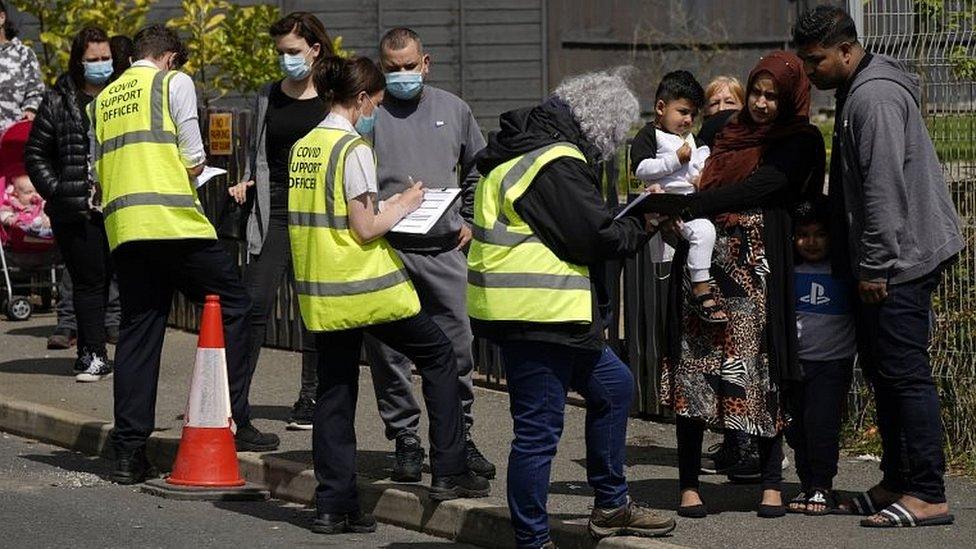
More than 6,000 local residents went to get their first dose of vaccine at the weekend
Mr Greenhalgh said he was opposed to a local lockdown, as the town had "been there before" and found they had little effect in such a "dense conurbation".
The Conservative council leader said people in such areas would simply "travel 50 yards across the county boundary" to access services and hospitality venues that were not open in their area.
He added that Bolton had been "disproportionately affected" by such measures since July 2020.
"Even when our rates were coming down, we were still in lockdown when in other areas, rates were higher than ours," he said.
"I do think there is a danger of unrest. There is a great deal of resentment.
"The people of Bolton have a great spirit and they come together when times are difficult, but [a lockdown] would be a very, very difficult situation to manage."

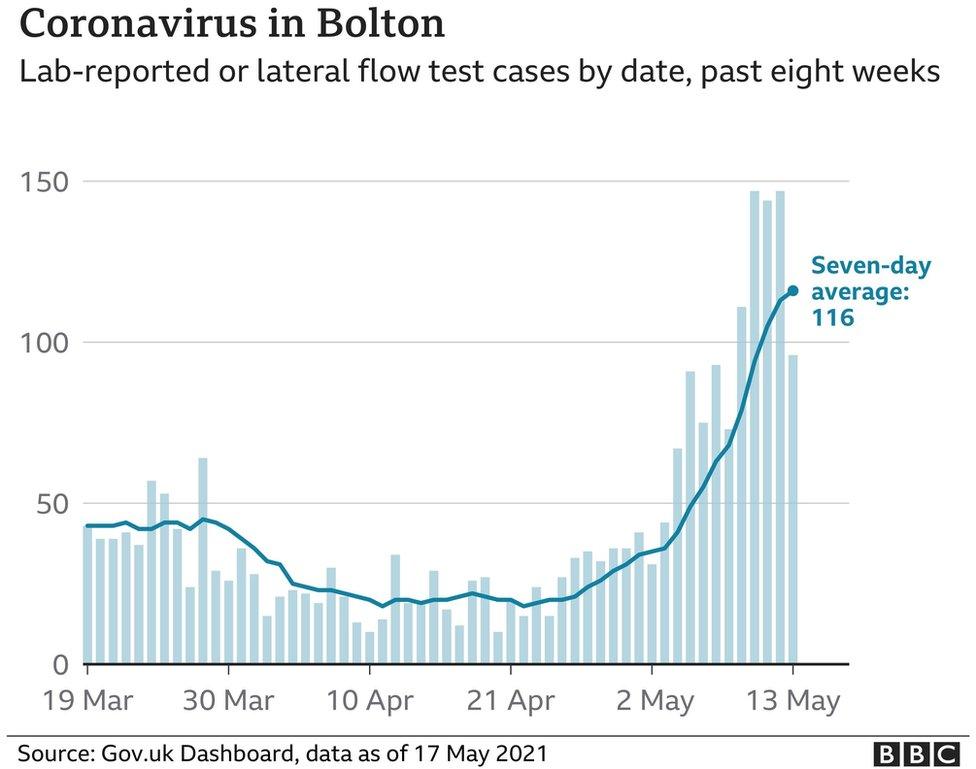

Prof Neil Ferguson, an epidemiologist at Imperial College London, said lockdowns were more effective when they cover wider areas.
He said the tier system used in October 2020 had worked "to some extent".
However, if the Indian variant did turn out to be more transmissible, he said locking down hotspot areas "may work in those areas, but it just allows the rest of the country to reach a high infection level and we know what the consequences of that were last year".
He said the real challenge for scientists and the government was to calculate if the "wall" provided by vaccination was sufficient to keep the consequences of the variant at a manageable level.

Why not follow BBC North West on Facebook, external, Twitter, external and Instagram, external? You can also send story ideas to northwest.newsonline@bbc.co.uk, external
Related topics
- Published19 May 2021
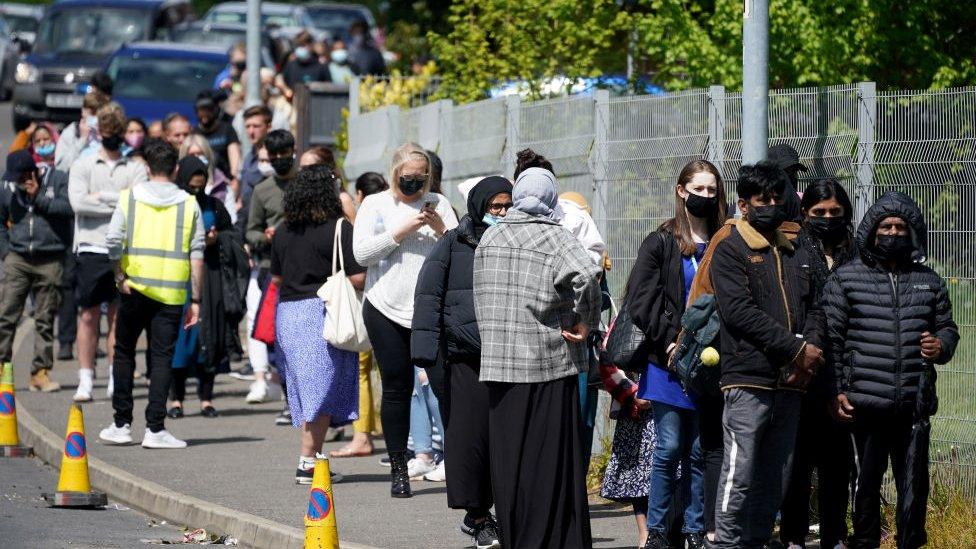
- Published18 May 2021
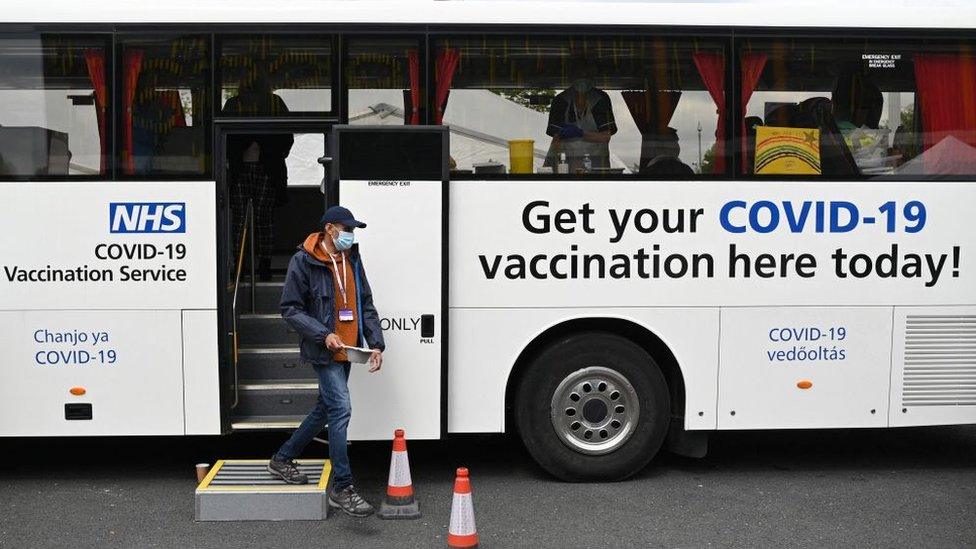
- Published18 May 2021
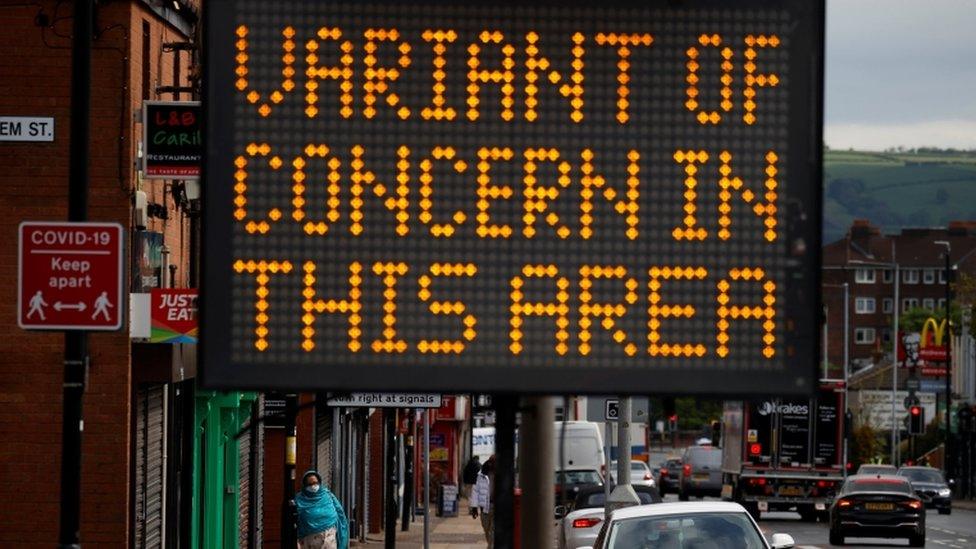
- Published17 May 2021

- Published17 May 2021
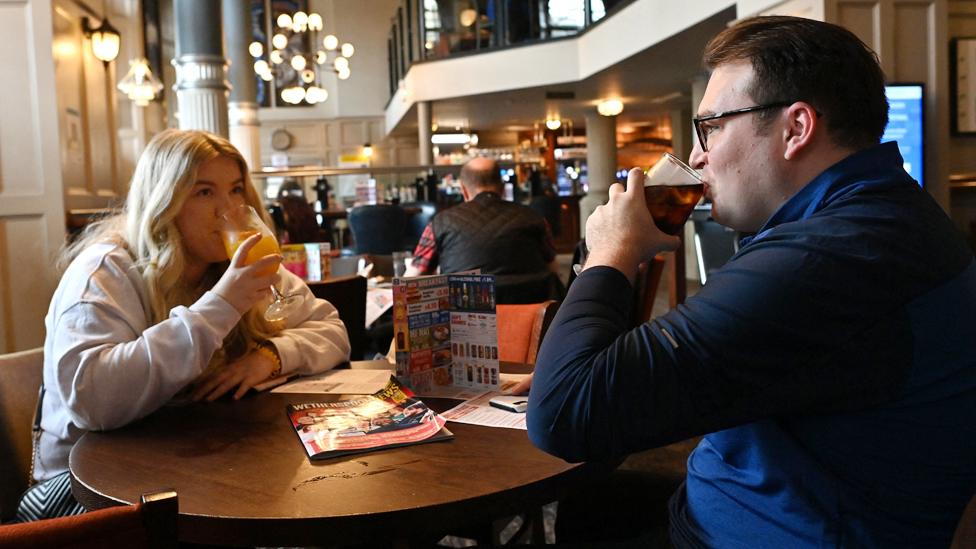
- Published16 May 2021
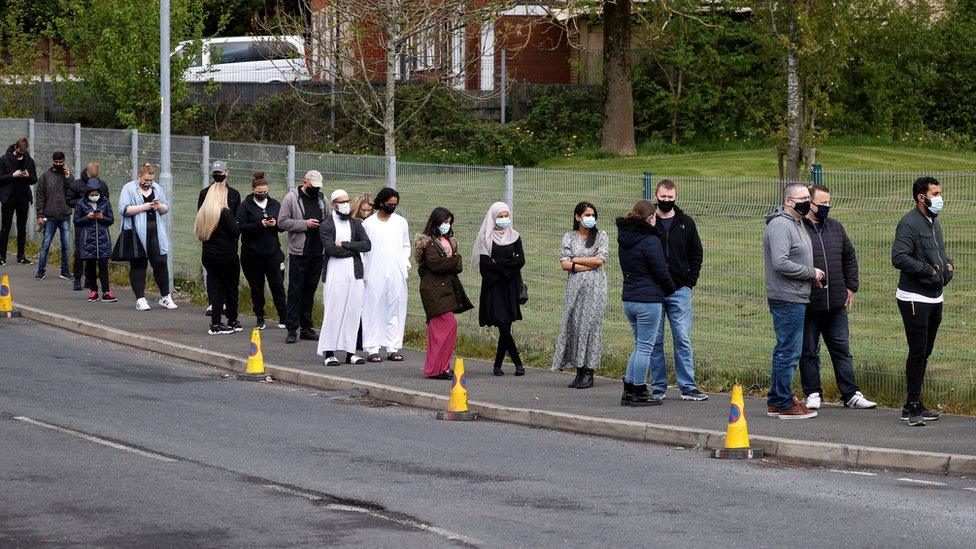
- Published16 May 2021
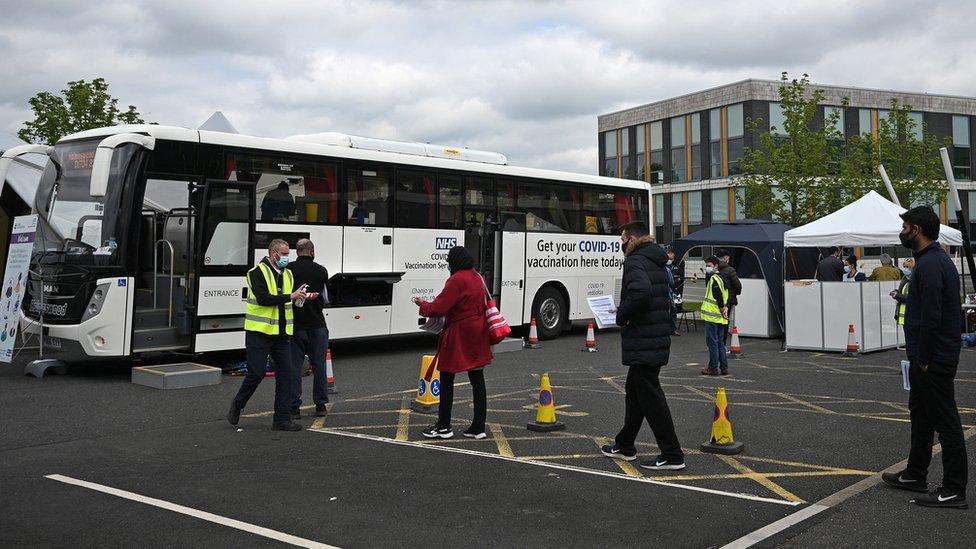
- Published15 May 2021
- Published14 May 2021
